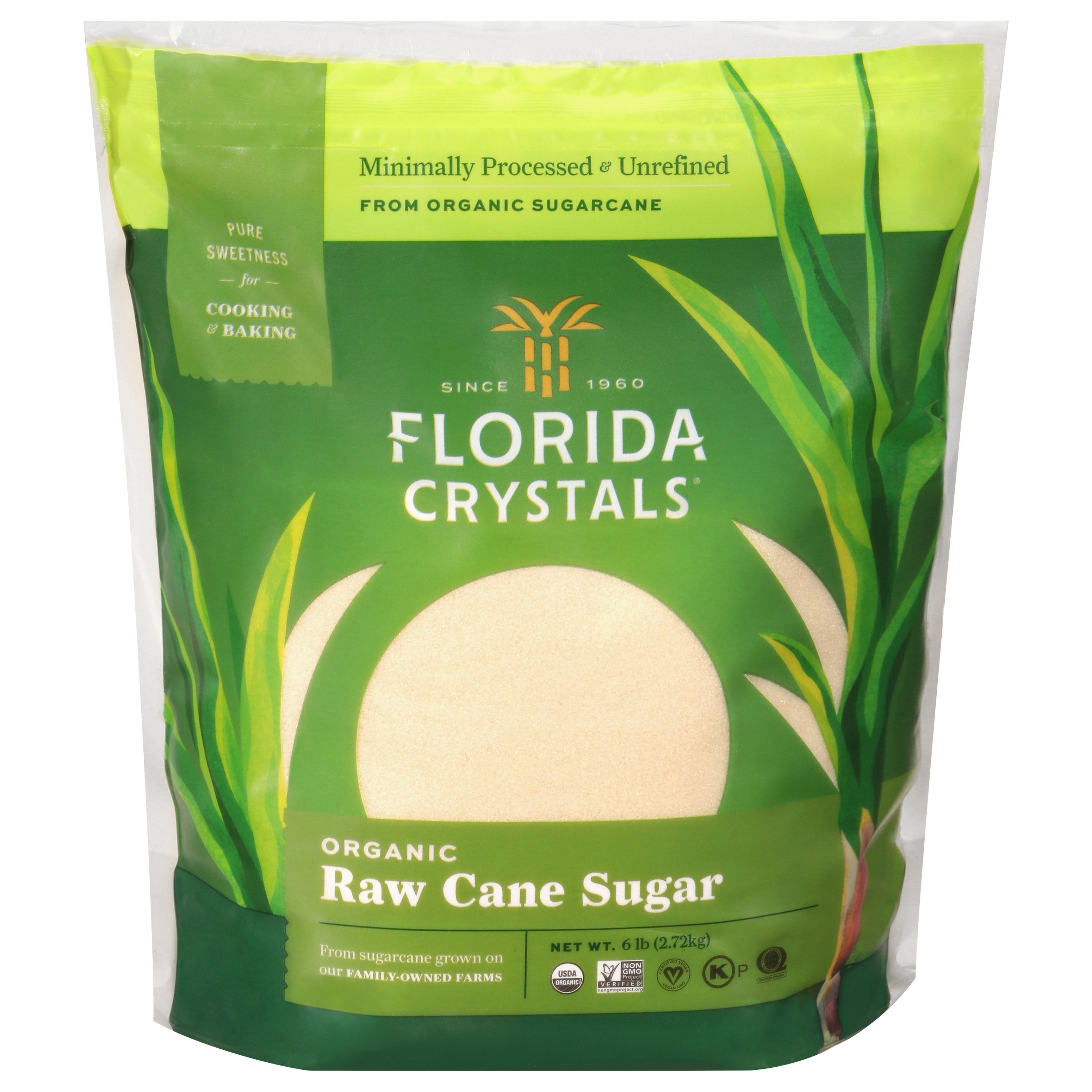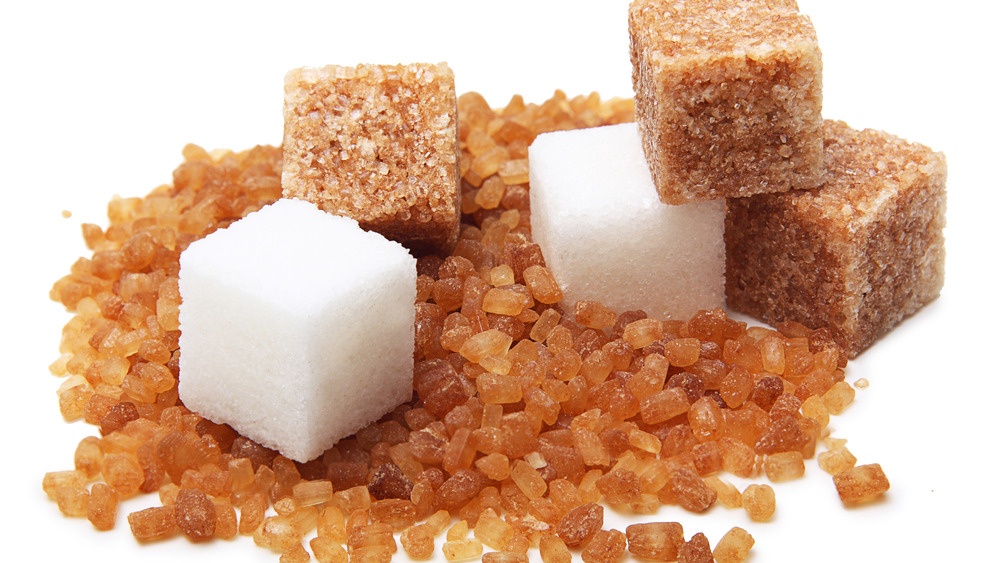Cane Sugar Processing: Typical Methods and Modern Innovations
Cane Sugar Processing: Typical Methods and Modern Innovations
Blog Article
A Detailed Summary of the Health And Wellness and Economic Effects of Cane Sugar Handling on Local Neighborhoods
Walking cane sugar processing plays an essential duty in shaping the financial landscape of regional communities, providing work possibilities and promoting supplementary industries. The wellness ramifications connected with high sugar usage can not be neglected, as they contribute to climbing prices of excessive weight and diabetic issues.
Financial Advantages of Walking Cane Sugar Processing
Walking cane sugar handling provides considerable economic benefits that prolong beyond the instant agricultural field. The growing and handling of sugarcane produce countless work opportunities, from farming to manufacturing and distribution. This work generation not just supports regional economic situations however also promotes area growth by supplying steady income resources for families.
Moreover, the sugar industry boosts ancillary organizations, including transportation, equipment supply, and packaging solutions (Cane Sugar Processing). As these markets grow, they add to a more durable financial framework, boosting overall neighborhood durability. The export potential of processed cane sugar even more enhances financial benefits, positioning areas as affordable gamers in international markets
Investment in modern handling facilities can lead to increased productivity and efficiency, consequently minimizing waste and enhancing source use. This change not just profits the regional economic situation however likewise sustains sustainability initiatives by minimizing environmental impacts.
In addition, the profits produced from cane sugar processing can be reinvested in regional framework, education, and healthcare, promoting alternative neighborhood development. In general, the economic benefits of walking cane sugar handling are diverse, giving a foundation for enduring prosperity in farming regions.
Health Risks Connected With Sugar Intake
Extreme sugar usage poses significant wellness risks that require major interest. High intake of included sugars, especially from refined drinks and foods, has been connected to many health issues.
Furthermore, high sugar intake is associated with cardiovascular disease. Raised blood sugar level levels can bring about insulin resistance, a forerunner to numerous heart-related concerns. Additionally, sugar can have harmful results on oral health, resulting in tooth cavities and gum tissue condition, as microorganisms in the mouth prosper on sugar, generating acids that wear down tooth enamel.
Moreover, emerging study recommends a potential web link in between high sugar intake and psychological health and wellness problems, such as anxiety and anxiousness. As neighborhoods come to grips with these wellness risks, it becomes important to advertise awareness and encourage healthier nutritional options. Dealing with sugar intake is important not only for private health but also for the overall health of regional communities, highlighting the demand for thorough public health and wellness approaches.
Ecological Effects of Sugar Manufacturing
Frequently neglected in discussions regarding sugar's effects is the considerable environmental influence of sugar manufacturing. The cultivation of sugarcane often requires considerable land usage, resulting in logging, loss of biodiversity, and disturbance of local ecosystems. The conversion of woodlands and wetlands right into sugar ranches can cause environment destruction, harmful numerous varieties and modifying environmental equilibrium.
In addition, sugar production is resource-intensive, consuming substantial amounts of water for watering. This can result in depletion of neighborhood water sources, adversely impacting both agricultural techniques and neighborhood access to tidy water. Additionally, using chemical plant foods and pesticides in sugarcane farming can add to soil deterioration and water contamination, as overflow from these chemicals enters neighboring rivers and lakes, affecting marine life and human health.
The ecological index footprint encompasses the processing phase, right here where energy usage and waste generation additional intensify ecological worries. Air air pollution from melting sugarcane fields, along with greenhouse gas exhausts, add to environment change. Thus, the ecological ramifications of sugar manufacturing warrant severe consideration, prompting stakeholders to take on more sustainable methods to mitigate these negative effects on neighborhood ecosystems and areas.
Task Production and Neighborhood Growth
The environmental obstacles posed by sugar manufacturing are commonly counterbalanced by its potential for economic advantages, specifically in job creation and neighborhood growth. The walking stick sugar market works as a substantial resource of employment in lots of backwoods, giving work throughout various ability levels, from farming labor to handling and circulation functions. This employment not just sustains individual family members but also contributes to the total financial vigor of neighborhood areas.
Furthermore, the establishment of sugar processing centers boosts secondary organizations, such as transport solutions, devices supply, and maintenance suppliers. As these organizations prosper, they produce additional work and strengthen regional economic climates. The profits generated from the sugar market also leads to enhanced tax obligation earnings, which can be reinvested into social work such as healthcare, framework, and education development.
Moreover, the sugar market often participates in community growth efforts, such as sustaining neighborhood institutions and health programs, thus enhancing the lifestyle for locals. By fostering strong community connections and promoting financial growth, the walking cane sugar processing industry plays a crucial function in uplifting neighborhood populaces, making it a vital component of lasting advancement strategies in sugar-producing regions.
Balancing Wellness and Economic Development
In navigating the complexities of cane sugar handling, a crucial challenge lies in balancing health and wellness factors to consider with financial growth. The sugar sector significantly adds to neighborhood economic situations by producing tasks, boosting relevant fields, and increasing tax obligation incomes. However, the health and wellness ramifications related to extreme sugar intake can lead to chronic conditions such as weight problems, diabetes mellitus, and cardiovascular problems, which can concern public health and wellness systems and lessen labor force efficiency.

In addition, governing structures can play an essential function in guiding industry techniques in the direction of even more lasting and health-conscious strategies. By fostering collaboration between government bodies, health and wellness companies, and the sugar industry, areas can navigate the dichotomy of wellness and financial development, guaranteeing that the benefits of cane sugar handling are equitably shared while focusing on public health.
Conclusion
In verdict, the handling of walking cane sugar offers both significant economic benefits and noteworthy wellness risks for neighborhood communities. While it cultivates work production and boosts local growth, the associated health and wellness issues, particularly regarding weight problems and diabetes, require a careful harmonizing act. By advertising liable intake and investing in community education and sustainable methods, it is possible to maximize financial benefits while reducing unfavorable health and wellness impacts, therefore guaranteeing a healthier future for regional populations.
Additionally, sugar can have destructive results on oral health and wellness, resulting in dental caries and gum tissue illness, as bacteria in the mouth thrive on sugar, producing acids that wear down tooth enamel.
Dealing with sugar intake is critical not only for specific health and wellness but also for the overall well-being of local neighborhoods, emphasizing the need for thorough public wellness techniques.
Regularly overlooked in discussions regarding sugar's ramifications is the considerable environmental impact of sugar manufacturing. The health and wellness ramifications connected with too much sugar intake can lead to persistent diseases such as weight problems, diabetic issues, and cardio problems, which can burden public health and wellness systems and decrease workforce performance.

Report this page